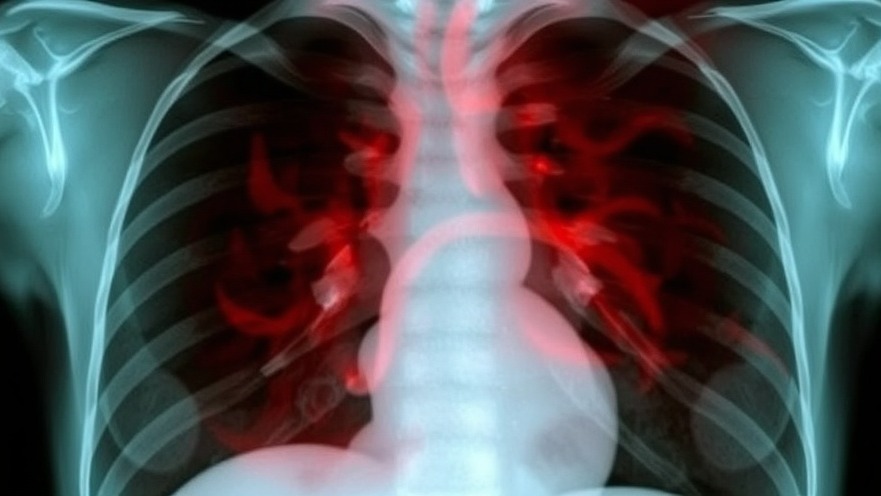
Promising Remission in Eosinophilic Granulomatosis with Polyangiitis
Recent advancements in the treatment of eosinophilic granulomatosis with polyangiitis (EGPA) have sparked hope among patients and healthcare providers alike. A new study presented at the 2025 American Academy of Allergy, Asthma & Immunology/World Allergy Organization Joint Congress has showcased the promising results of benralizumab—a biologic medication that is proving effective for this rare autoimmune condition.
What is Eosinophilic Granulomatosis with Polyangiitis?
EGPA is a rare but serious autoimmune disease characterized by eosinophilic inflammation that can affect various organs. Typically, treatment relied heavily on corticosteroids, which come with a host of side effects. In a glance at the latest findings, it appears that treatments like benralizumab are changing the possible outcomes for many patients.
Study Insights: What the Data Shows
According to Dr. David J. Jackson, a consultant at Guy’s Severe Asthma Centre, the study indicated that most patients showed sustained remission for up to 104 weeks while using benralizumab. Additionally, about 44% of participants were able to discontinue the use of oral glucocorticoids, which is a significant achievement given the potential side effects of long-term corticosteroid use. Moreover, blood eosinophil counts also decreased significantly, illustrating the drug's effectiveness in managing this condition.
First of its Kind: A Head-to-Head Comparison
This study was groundbreaking as it was the first head-to-head comparison of type 2 biologics for treating EGPA. Benralizumab specifically targets IL-5 receptors, unlike mepolizumab, which neutralizes IL-5 in the serum but does not fully deplete eosinophil levels. This crucial distinction may help healthcare providers make more informed decisions regarding treatment options for their patients.
Future Directions: The Role of Biologics in EGPA Management
The positive results derived from benralizumab usage underline the essential need for a greater focus on biologics in treating EGPA and other eosinophilic conditions. Such treatments can provide targeted relief without the extensive side effects associated with traditional steroid therapies, enhancing the quality of life for patients.
The Takeaway for Concierge Medical Practices
For concierge medical practices looking to enhance patient care, understanding groundbreaking treatments like benralizumab can differentiate your practice in a competitive field. By providing cutting-edge, evidence-based care options, you can build stronger relationships with your patients while improving overall health outcomes.
As the future unfolds, being informed about new therapies will not only allow you to provide the best care possible but also position your practice as a thought leader in the healthcare community.
Interested in staying updated on innovative treatments and strategies to elevate your concierge practice? Consider joining a network that focuses on the latest research and therapeutic advancements. Enhancing your knowledge means better care for your patients and solidifying your practice’s standing in the community.
 Add Row
Add Row  Add
Add 






Write A Comment